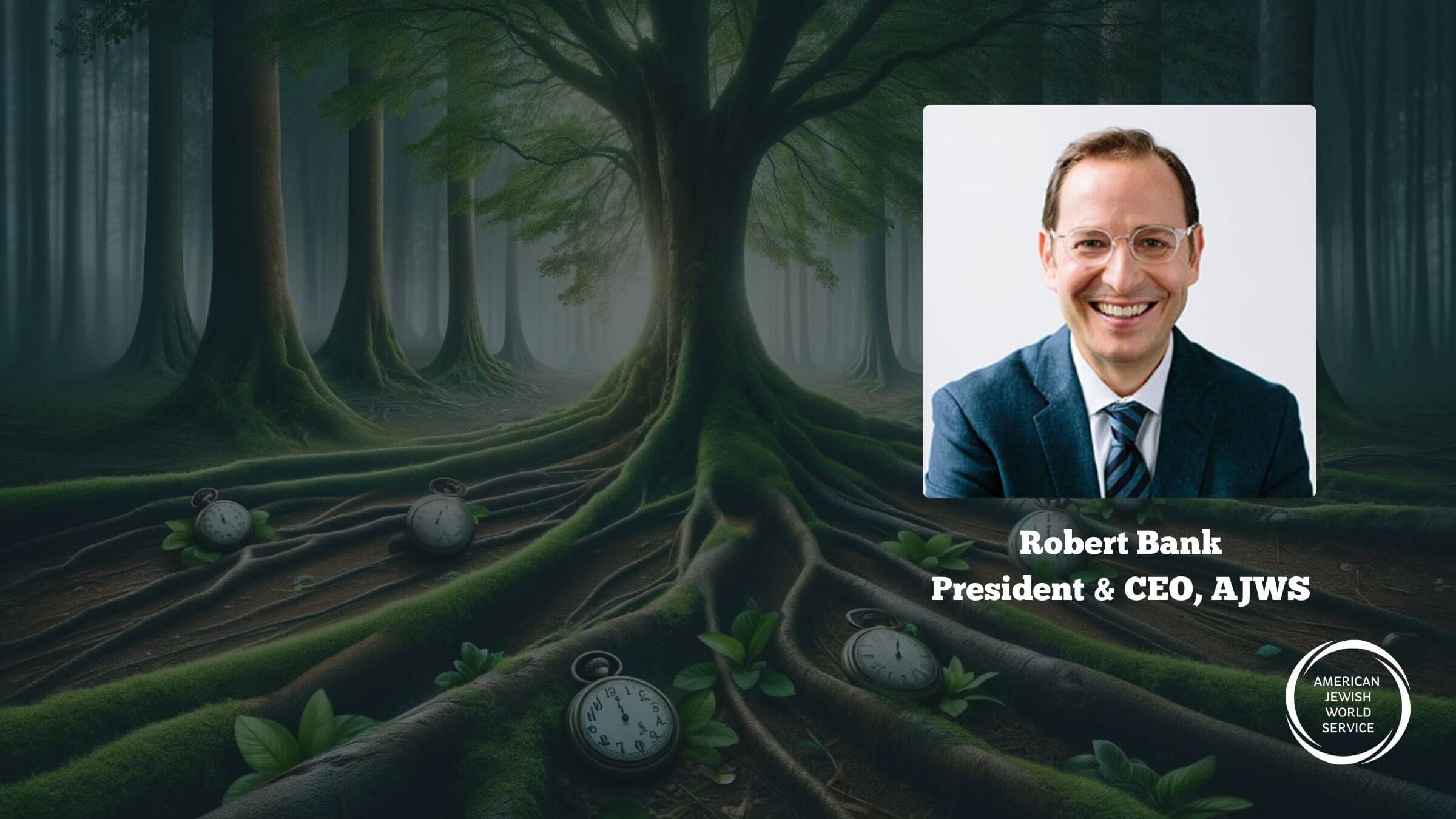Our Jewish Three-Part Package
We need to believe that each one of us can make a difference, and then set out to do something.

As Jews, our foundational values are justice and equity. Yet the heartbreak of the last few months may prompt the question, “why should we be focused on the dire needs of those in Global South countries when we feel on less than steady ground here?” Yes, we must speak up for ourselves, but this doesn’t excuse us from the fight for global equity.
In the Kenyan coastal city of Mombasa, trans people leave home each day with a few extra bills tucked in a side pocket. Ready money for a bribe can hopefully prevent a humiliating and dangerous sequence of abuse: interrogation, harassment, arrest, and prison. In neighboring Uganda, where a new law punishes homosexuality with life imprisonment or the death sentence, brutal treatment of gay people has been proclaimed the law of the land.
Intolerance toward the LGBTQI+ community is just one example of accelerating prejudice that prevents vulnerable people in Global South countries from living with dignity, if living at all. The United States is certainly not immune. Ongoing race-based discrimination here draws on centuries of slavery, sanctioned theft of Native American lands, and the perennial abuse of Latin American and Asian migrant workers. We stand speechless, although not powerless, as we watch a resurgence of anti-Semitism here and abroad. As the only American global Jewish organization focused solely on advancing human rights outside of the United States and Middle East, American Jewish World Service sees the consequences of centuries of prejudice in every country where we work.
In the Dominican Republic, Dominicans of Haitian descent, even those born there, have been stripped of their citizenship because of government sanctioned racism. They are the largest stateless population in the Western Hemisphere with no access to education, employment, or healthcare in their home country. India, with the world’s third-largest Muslim population, has institutionalized a religious bias, exposing more than 200 million Muslim people to decades of discrimination. Since the 2014 election of Narendra Modi, Muslims in India are subject to extreme violence, a scenario likely to worsen with Modi re-elected president this spring.
When historically marginalized groups face oppression, when reproductive health is controlled, when democratic institutions are threatened, we need to believe that each one of us can make a difference, and then set out to do something. Jews, who for centuries have understood what it means to be ostracized, judged, and denied, are naturally suited to this call even amidst a resurgence of antisemitism.
Rabbi Hillel’s exquisitely prescient and ethical triptych asks us to both look after ourselves but not only ourselves. And to act urgently. I see this as a three-part package, and we can’t choose only one.
“Moving Through the Wilderness: Recommitting to Equity After 10/7” is a collection of brief essays born out of Elevate: An Executive Leadership Equity Accelerator. Elevate launched in May 2023 and its first cohort consisted of eleven CEOs of influential Jewish institutions, who are committed to the Jewish value and responsibility of equity within our community. The idea for this project emerged in Montgomery, Alabama during one of Elevate’s in-person convenings in early 2024. To learn more about Elevate and the program’s co-founders and leaders, Gamal J. Palmer and Catherine Bell, click here.
Moving Through the Wilderness is presented in partnership with the Forward, the leading voice in Jewish journalism. Read more essays in the collection.












